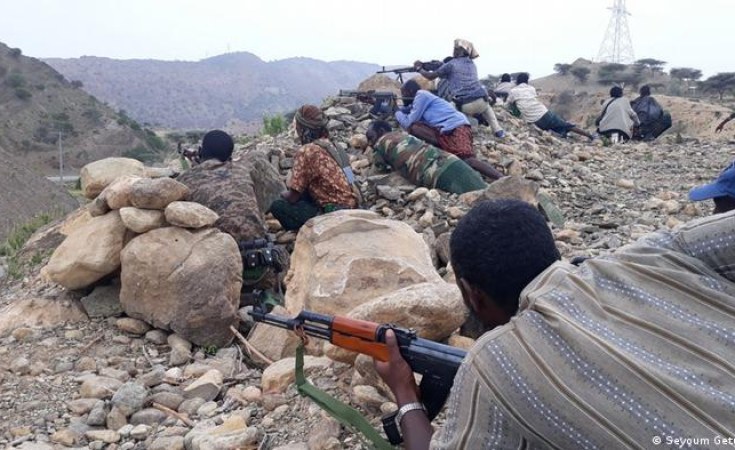Washington — As Ethiopians emerge from two years of conflict, a new Gallup survey paints a bleak picture of people suffering economically and emotionally.
The survey conducted in the fall of 2022, found that a record-high 65% of Ethiopians are struggling to afford food, with food prices rising 43% in 2022 compared to 2021, and certain staple items soaring by more than 80%.
Opinion researchers had not been able to enter the country in 2021 and saw a significant change when they returned the following year. Zach Bikus, regional director-Africa at Gallup said the team interviewed about 1,000 people but were not able to travel to the conflict areas.
"This year we were really excited to get back and really hear what the people are thinking," he said. "And so, the main takeaway from this data that we just collected really is that the past couple of years have been difficult years."
In addition to the conflict, the country is facing its worst drought in 40 years, putting additional pressure on the food supply, the report said. At the same time, income is also under pressure, with 45% of Ethiopians finding it "very difficult" to get by on their present household income, compared to 28% in 2019.
Bikus said he is seeing similar results across the region. "Really, East Africa, in general, is facing this drought, but also the fallout from the Ukraine-Russia conflict," he said. "Many of the countries in these regions are big importers of wheat, Ethiopia included, and fertilizer. So, really the global pressures on food supply and prices I think are happening in a major impact."
The situation has had a profound effect on Ethiopians' mental and emotional well-being. When asked to rate their quality of life from 1 to 10, the average rating dropped from 4.5 in 2020 to just 3.6 in 2022, the lowest since 2012. The survey also found significant increases in people reporting they feel "worry," "physical pain," "anger," and "stress."
"We asked about physical issues, food and infrastructure, but really there's kind of an emotional component too and how people are feeling themselves in terms of happiness or negative emotions," Bikus said. "I think that's another important thing to keep an eye on."
The country faces a monumental task in maintaining peace, restarting the economy and reconciliation in the wake of the conflict, but there has been some positive news, the report noted.
Researchers still haven't been able to access the Tigray region and some of the surrounding areas, Bikus said. "I believe it was about 7% of the population we were unable to talk to," he said, adding that although the team followed protocols, they are "kind of at the mercy of circumstances sometimes."


